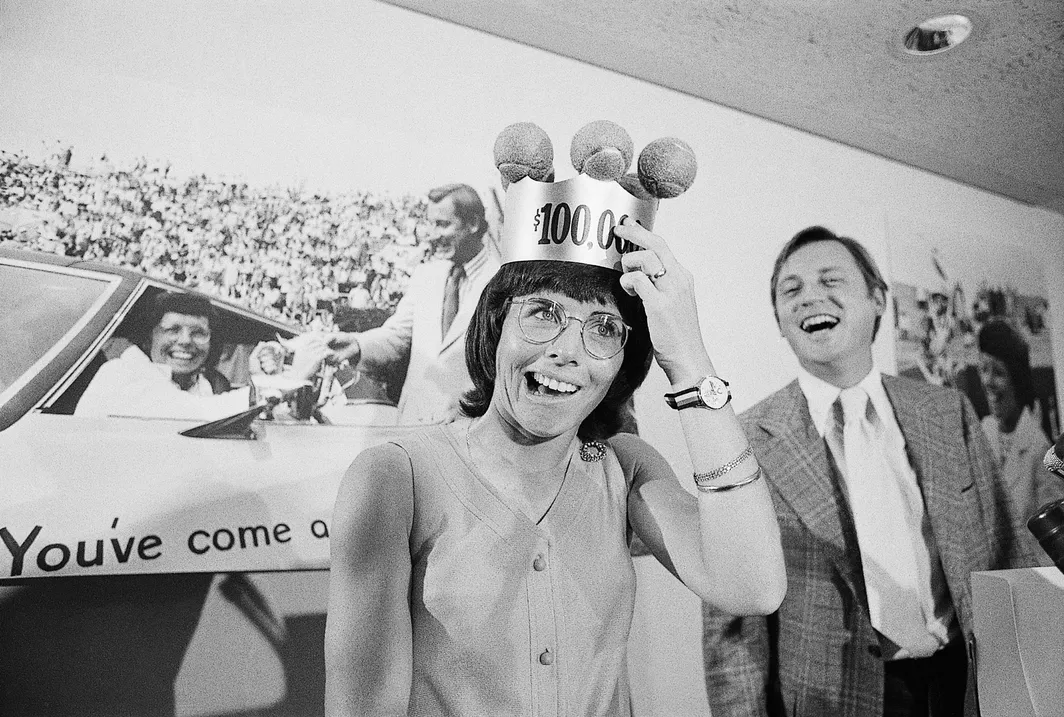Last week marked a momentous occasion in the history of tennis, as the 50th anniversary of the founding of the Women’s Tennis Association (WTA) was celebrated by all in the game.
The tennis landscape has changed dramatically over the last five decades since the great Billie Jean King led a player movement that changed tennis forever, with the results of this collective effort on display each and every week since the WTA was formed.
Frustrated by entrenched sexism in the sport’s establishment, which ultimately resulted in competing circuits and a divided talent pool, tennis great King recognised the need for female tennis players to formally join forces in order to take control of their destiny.
HOW IT STARTED
On Friday, June 30, WTA founder Billie Jean King and a group of founder-members will reunite at what is now the Millennium Gloucester Hotel in South Kensington, with around 60 players in attendance.
With Dutch player Betty Stove standing guard at the door of a packed conference room at London’s Gloucester Hotel, King – who had won nine of her 12 Grand Slam singles titles by that time – was determined no one would leave until a definitive agreement had been reached.
The threat of a breakaway tour was very real and with that bargaining chip on the table, King sat at a table at the front of the room, with fellow player Rosie Casals – nicknamed The General – at her side.
They emerged from the meeting triumphant, and King was elected president of the new Women’s Tennis Association.
This was a defining moment in the history of the women’s game.

HOW THE WTA DEVELOPED
What started as a player union is now a world-leading member association between athletes and the 50-plus tournaments on six continents that make up the Hologic WTA Tour calendar each year.
Heading into 2023, 32 countries were represented in the Top 100 of the WTA rankings; entertaining a worldwide audience of more than 900 million.
Alongside compelling tales of victory and defeat, the WTA’s five-decade history is punctuated by a string of notable breakthroughs for women’s sports.
“When we gathered at the Gloucester Hotel, we were at a point in our history where we needed one strong, unified voice among the players,” said King, who also managed to capture the triple crown of singles, doubles and mixed doubles titles at Wimbledon, two weeks after founding the WTA. “As women athletes, we needed to create a future based on equality of opportunity, and we could only do that if we presented a united front.
“When we formed the WTA in 1973, we came together and found promoters, sponsors and fans who wanted to be part of the journey – inspired by champions who led by example, on and off court.
“We have come a long way, but there is more to be done and when I look at the current generation of game changers, I feel proud and excited for what’s to come.”
EQUAL PRIZE MONEY
There are few sports that boast the level of equality we see in tennis.
Even though women play best-of-three-set matches and men play over the longer five-set format, equal prize money is paid at all Grand Slam tournaments.
It means that the Women’s Singles’ champion at Wimbledon next month will be handed a stunning £2.35million, with the runner-up collecting £1,175,000.
This is a 11.2% increase on the 2022 winners’ cheque and a 17.1% increase on the pre-pandemic Championships in 2019.
The reality that women earn the same money as men, despite playing fewer sets, and lacking the media appeal of the top stars in the men’s game is a constant topic of discussion in tennis, yet the prize money argument has not been entirely settled.
While the four Grand Slam events are onboard with equal prize money, regular tour events hosting both men’s and women’s draws in the same week still have huge disparities in prize money.
This is because these events are run by ATP, the governing body of men’s tennis, and the WTA.
Both organisations have different sponsorship and TV deals in place, meaning different revenue streams feed through to the players.
The chasm in prize money between the men’s and women’s game was highlighted at last month’s Italian Open in Rome, where the men’s winner collected a cheque for €1,105,265, and the women’s winner pocketed €521,754.
Such was the difference in prize money that the runner-up in the men’s event collected more than the women’s champion.
So, while tennis has led the way in sporting equality since the formation of the WTA 50 years ago, this story still has more chapters to be written before true equality is reached.
READ MORE: THE ORIGINAL 9: PIONEERS OF EQUALITY IN TENNIS REWRITE HISTORY

